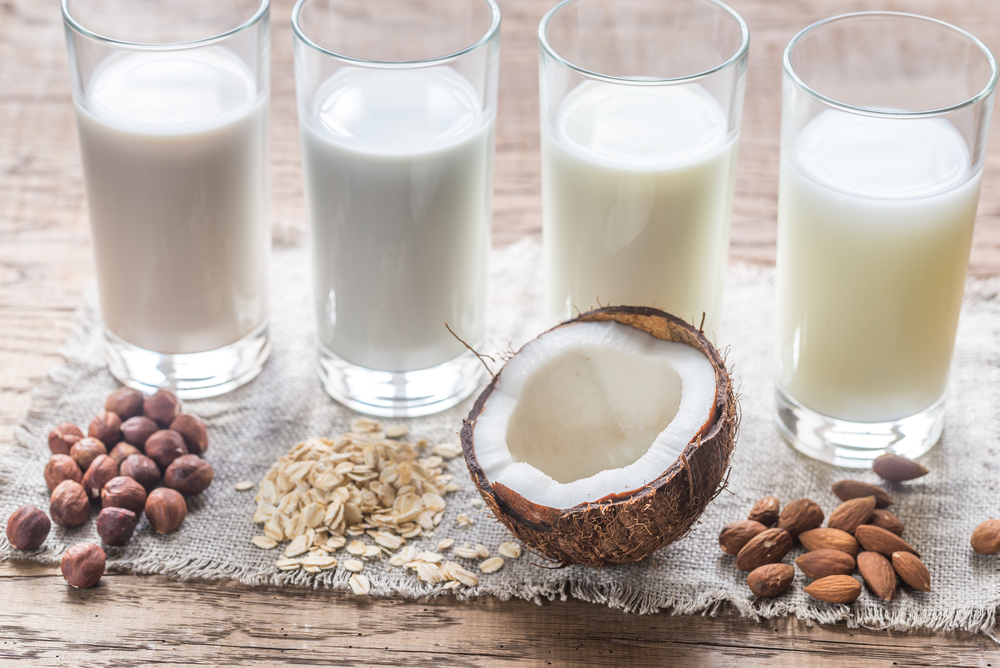```html
How to Shop for Healthy Dairy Alternatives: A Comprehensive Guide
Tired of dairy but craving the creamy goodness of milk, yogurt, or cheese? You're not alone! The dairy alternative market is booming, offering a plethora of plant-based options. But with so many choices, how do you shop for healthy dairy alternatives that align with your dietary needs and preferences? This guide will break down the key considerations, helping you make informed decisions at the grocery store.
Why Choose Dairy Alternatives? Exploring the Benefits
More and more people are exploring dairy-free options for various reasons. These include lactose intolerance, dairy allergies, vegan or vegetarian lifestyles, or simply a desire to diversify their diet. Regardless of your motivation, it's important to understand the benefits and how to select the right products.
Switching to dairy alternatives can offer several advantages:
- Improved Digestion: Many people experience digestive issues from lactose, the sugar found in milk. Dairy alternatives eliminate this problem.
- Plant-Based Nutrition: Plant-based milks often contain fiber, vitamins, and minerals that aren't abundant in cow's milk.
- Lower in Saturated Fat: Many dairy alternatives are lower in saturated fat and cholesterol, which can be beneficial for heart health.
- Environmental Concerns: Choosing plant-based options can reduce your environmental footprint.
Decoding Dairy Alternative Labels: What to Look For
Navigating the dairy alternative aisle can feel overwhelming. Here's a breakdown of what to look for on the labels when considering how to shop for healthy dairy alternatives:
Understanding the Ingredients List
The ingredients list is your best friend! Look for products with short, recognizable ingredient lists. Avoid those laden with added sugars, artificial flavors, and excessive additives. Here are some key ingredients to watch out for:
- Carrageenan: A seaweed extract used as a thickener, some individuals may experience digestive upset.
- Added Sugars: Many dairy alternatives contain added sugars like cane sugar or corn syrup. Opt for unsweetened varieties.
- Oils: Be mindful of the type of oil used, as some may be high in saturated fat.
Checking the Nutrition Facts
Pay attention to the following nutritional information:
- Calories: Compare calorie counts to ensure the alternative fits your dietary needs.
- Protein: Consider your protein requirements. Soy milk is typically the highest in protein among plant-based milks.
- Fat: Look at the total fat, saturated fat, and trans fat content. Opt for alternatives with lower saturated fat.
- Sugar: Choose unsweetened varieties or those with minimal added sugar.
- Calcium and Vitamin D: Many dairy alternatives are fortified with calcium and vitamin D to match the nutritional profile of cow's milk.
Popular Dairy Alternatives: A Comparative Overview
Here's a brief overview of some popular dairy alternatives:
- Soy Milk: A complete protein source, similar in nutritional profile to cow's milk.
- Almond Milk: Low in calories and fat, but also lower in protein.
- Oat Milk: Creamy and naturally sweet, but can be higher in carbohydrates.
- Coconut Milk: Rich and creamy, but higher in saturated fat.
- Rice Milk: A good option for those with allergies, but lower in protein and nutrients.
- Cashew Milk: Similar to almond milk in terms of nutrition and flavor.
- Pea Milk: Made from yellow peas, a good source of protein and calcium.
When deciding how to shop for healthy dairy alternatives, consider your specific needs and preferences. If you need more protein, soy or pea milk might be a better choice. If you're watching your calorie intake, almond milk could be a good option. Taste also plays a significant role! Experiment to find your favorites.
Expert Tips for Making the Switch
"When transitioning to dairy alternatives, focus on whole, unprocessed ingredients whenever possible. Look for brands that prioritize clean labels and minimal additives," advises registered dietitian Sarah Jones.
Consider the intended use of the dairy alternative. Different varieties work better in different applications. For example, oat milk is excellent for lattes due to its creamy texture, while almond milk is often preferred for baking.
Frequently Asked Questions (FAQs)
What are the healthiest dairy alternatives for weight loss?
For weight loss, unsweetened almond milk and unsweetened cashew milk are often recommended due to their low calorie and fat content. However, it's crucial to consider your overall diet and activity level.
Are dairy alternatives suitable for children?
Yes, but it's crucial to choose alternatives that are fortified with calcium, vitamin D, and other essential nutrients. Consult with a pediatrician or registered dietitian to ensure your child's nutritional needs are being met.
Can I make my own dairy alternatives at home?
Absolutely! Making your own dairy alternatives can be a cost-effective and healthy option. You can find numerous recipes online for homemade almond milk, oat milk, and cashew milk. This allows you to control the ingredients and avoid additives.
Conclusion: Embrace the World of Dairy-Free Options
Learning how to shop for healthy dairy alternatives opens a world of delicious and nutritious possibilities. By understanding the ingredients, nutrition facts, and different types of plant-based options available, you can make informed choices that support your health and well-being. Ready to explore the dairy-free aisle? Start today and discover your new favorite alternative! Browse the available products at your local grocery store and compare labels carefully. Your body will thank you!
```
